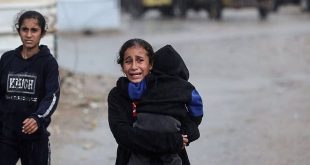This conference seeks to bring together a multi-disciplinary group of scholars to advance the history of the senses in the Islamic world.
The international conference Convened by the SENSIS research project at Utrecht University, this conference seeks to bring together a multi-disciplinary group of scholars to advance the history of the senses in the Islamic world. Inspired by the “sensory turn” (Howes 2003) that has enriched numerous areas of the humanities and social sciences in recent years, we will explore how Muslims across different historical, geographical, social, and intellectual contexts experienced sight, sound, smell, taste, and touch.
Why write the senses into the history of Islam? While sensory history is a rapidly growing field, to date the majority of works on the history of the senses has been framed around distinct geographies that emphasize Western European and North American contexts (Classen 2014, Smith 2021). Only recently have scholars of Islamic history and culture begun to devote sustained attention to the senses (Elias 2012, Bonnéric 2016, Fahmy 2020, Lange 2022). Similarly, pathbreaking work has emerged in the related field of the history of emotions, especially in the context of early modern and modern South Asia, Safavid Iran, and the Ottoman empire (Rizvi 2017, Pernau 2019, Schofield 2021, Tekgül 2022). However, much remains to be done before Islamic sensory history becomes a well-established field of inquiry.
How, then, can we conceive of the Muslim sensorium over the course of history? Is there really such a thing as a Muslim sensorium? What are the ways in which we could write the history of the senses in the Islamic world? What does Islamic sensory history teach us about, say, the Ottomans, the Safavids, or the Mughals that conventional or “sense-less” history does not? How is sensory history connected to or distinct from the history of emotions? And what are the methods, interpretive stakes, and archival challenges in doing Islamic sensory history? These are some of the key questions this conference aims to address.
As historians of the senses, we are interested in understanding how the senses are historically and culturally constructed. This also obliges us to interrogate the historical formation of our own investigative categories, such as Islam, modernity, empire, or the nation-state (Smith 2007). Geographically and temporally, this conference loosely focuses on the three early modern empires of the Ottomans, the Safavids, and the Mughals (c. 1500-1900). We are particularly interested in contributions that approach the senses from a transregional and transnational focus. Moreover, we invite scholars to think about ways in which Islamic sensory history relates to questions of class, gender, sexuality, emotions, religious identity, migration, kingship, the state, imperialism, and colonialism.
Papers are welcome on topics such as the following:
- Sensory approaches to Ottoman, Safavid/Qajar, or Mughal history
- Islamic mysticism and the senses
- Islamic law and the senses
- Devotional practices and the senses
- The senses in multilingual, multi-ethnic, and religiously diverse contexts
- Cross-cultural encounters and the senses
- Intersensoriality and synesthesia
- The senses in times of war and conflict
- Courtly culture and the senses
- Identity and the senses
- Colonial modernity, Orientalism, and the senses
- Emotions and the senses
- Material culture and sensory history
- Art, music, poetry, and aesthetics in sensory history
- The senses in economic, intellectual, cultural, and social history
- Sources, archives, and research languages
It is our pleasure to announce Professor David Howes (Concordia University) and Professor Nil Tekgül (Bilkent University) as keynote speakers for the conference.
Paper Proposals
Please send your proposals to g.sievers@uu.nl, including paper title, abstract (max 250 words), name, and institution, by June 1, 2024. We welcome scholars regardless of geographical location and particularly encourage graduate students and early-career scholars to submit paper proposals. We have limited funds available to supplement travel costs of presenters. Please indicate in your email if you would like to be considered for a travel grant and/or whether you can secure travel funding from your home institution. No registration fee is required for participation. Confirmed presenters will be asked to submit final drafts of their papers to respondents no later than October 10, 2024.
Contact Information
Gianni Sievers, Utrecht University
Contact Email: g.sievers@uu.nl
 Ijtihad Network Being Wise and Faithful Muslim in the Contemporary World
Ijtihad Network Being Wise and Faithful Muslim in the Contemporary World
